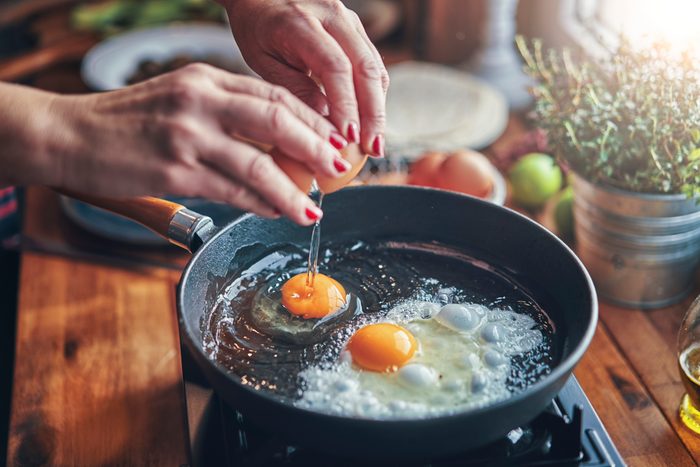
Bad food habits you should stop now
You probably have a number of daily routines around meals and snacking, including what, how, and when you eat different types of foods. These food habits can make you feel in control of your health, after all, if all you know how to cook is vegetable stir fry, that’s not a bad thing, right? Not exactly. Nutritionists say there are some food habits that can actually affect your gut health and not in the best of ways.
We spoke to registered dietitians and nutritionists who shared some of the common food preparation, cooking, and eating habits you should probably try to avoid.
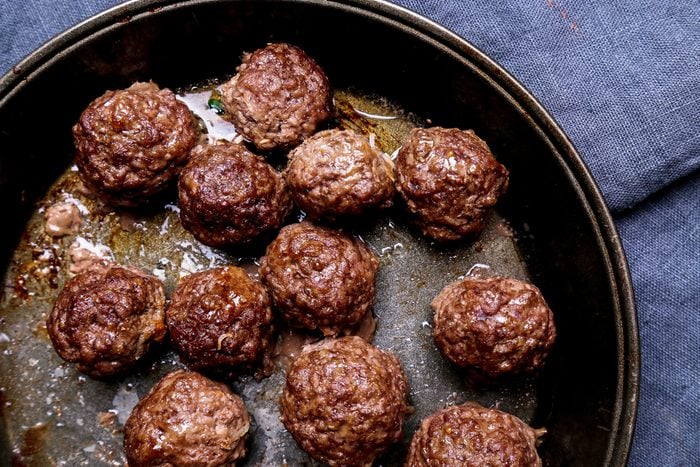
1. Overcooking meat
Always grilling or cooking meat until it’s well done could do more harm than good, which is why this cooking habit is something Lisa Richards, nutritionist and creator of TheCandidaDiet.com, wishes people would quit. “Overcooking your meat can form compounds that increase oxidative stress and inflammation, and may even increase the risk of certain cancers,” Richards says. “The most common culprit is grilling at high temperatures.”
These high temperatures that char meat are OK in small amounts. For the most part, Richards recommends stewing, roasting, or slow cooking meat as healthier alternatives because charring meat is one of the nine cooking mistakes that could make your food toxic.
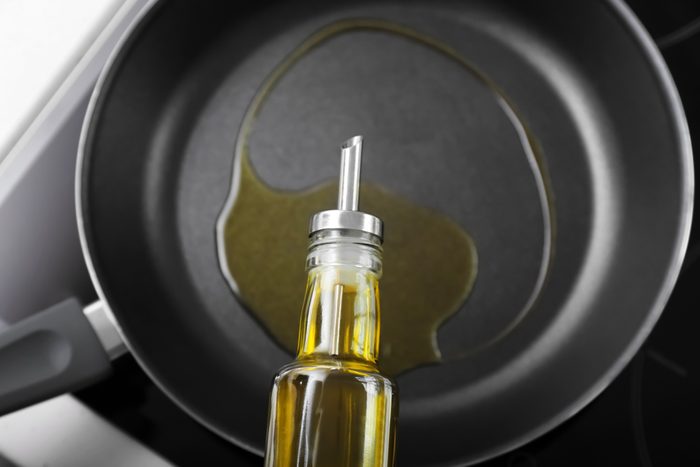
2. Cooking with too much or too little fat
Too much oil or healthy fat adds calories without extra nutrients—but too little means you’re missing out on some health benefits. That’s why Kris Sollid, RD, the senior director of nutrition communications for the International Food Information Council Foundation, says to go easy on oils.
“A little is good for flavor, but more isn’t ‘better’ for your health,” he says. “Cooking oils like olive, canola, and soybean are great sources of healthy fats but are high in calories.”
Don’t go to the other extreme and avoid all oils. In fact, Hillary Cecere, MS, RDN, for Eat Clean Bro, notes that fat is an essential nutrient that helps absorb fat-soluble vitamins. The goal should be cooking with a healthy balance of fats, so keep an eye out for these signs that you’re not eating enough healthy fats.
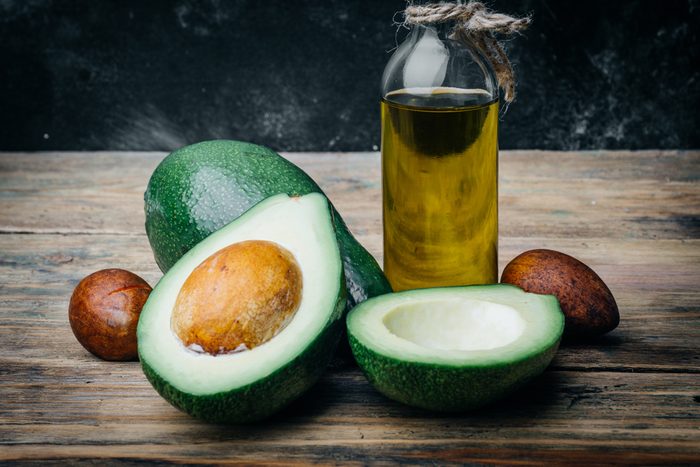
3. Cooking everything with the same oil
Balancing fat and oil usage is only one oil cooking habit nutritionists want you to fix. It’s also key to be mindful about what kinds you use, especially when cooking at higher temperatures, Cecere says.
“So many people use olive oil to cook, but it has a lower smoke point,” she says. (It’s likely to smoke if it goes above 325 degrees F.) When oils smoke, they break down and lose their taste plus some of their nutritional value.
Choose safflower or avocado oil for cooking at higher temperatures to prevent burning, Cecere recommends.
What Nutritionists Need You to Know About Smoke Point and Cooking Oils
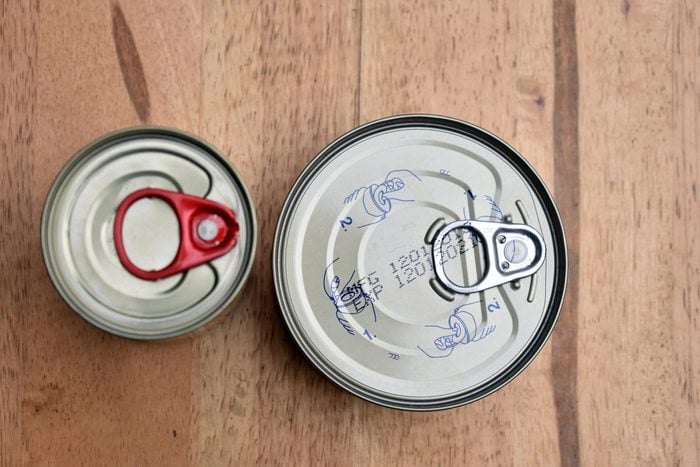
4. Throwing things out because of the “sell-by” date
Another habit Sollid wishes people didn’t have? Wasting food. He recommends that you don’t throw out food because of the “sell-by” date. Instead, focus on “use-by” dates, which tell you when food should be eaten.
People should throw away products after that date, according to Sollid. Just pay attention to the foods with expiration dates you should stick to.
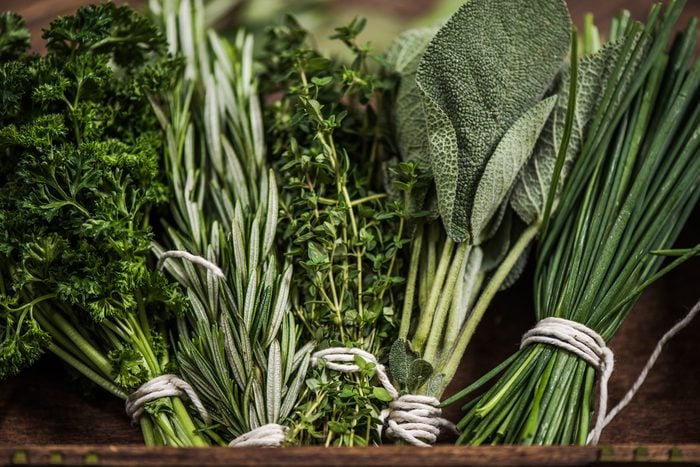
5. Always cooking the same foods
Are you guilty of eating the same meals over and over? If so, try peppering in some new foods or cooking strategies. You won’t know if you like something unless you try it. “I hate when people say they don’t like a food before even trying it or preparing it different ways,” Cecere says. Hate raw carrots? Try roasting them with olive oil and fresh herbs, Cecere suggests. Not only will trying new foods or cooking techniques open your taste bud horizons, but it adds a greater variety of nutrients to your diet, too.
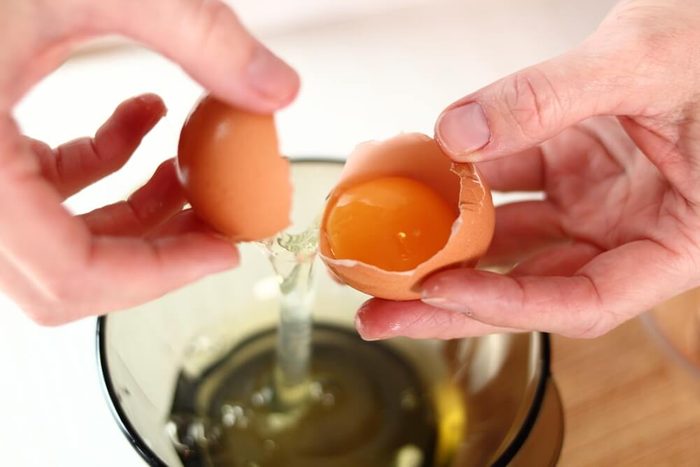
6. Only cooking with the egg whites
If you always opt for egg whites instead of whole eggs, you’re missing out on some nutrients, according to Cecere. “I wish people would cook with the yolks of eggs more,” Cecere says. “So many people are just eating egg whites to save calories, but the yolk is where all the nutrition is.” So although egg whites are a great source of protein, they aren’t necessarily healthier than whole eggs. Plus, eating the yolk might even help keep you full longer.
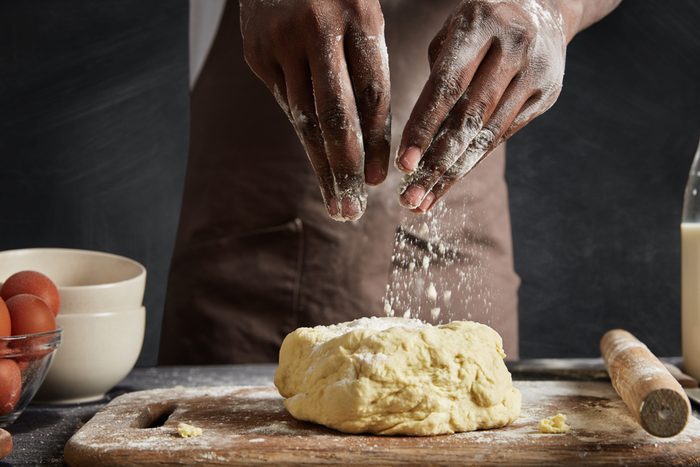
7. Cooking gluten-free everything
People with celiac disease, gluten allergy, sensitivity, or intolerance should limit or eliminate gluten. However, if you aren’t part of that group, remember that there isn’t evidence that a gluten-free lifestyle will make you healthier or help you lose weight, according to Malina Malkani, RDN, New York.
Although a gluten-free diet can absolutely be healthy and complete, removing gluten unnecessarily makes it harder to get enough fiber, vitamins, and minerals the body needs to thrive since many of these micronutrients are in grains that contain gluten, says Malkani, a media spokesperson for the Academy of Nutrition and Dietetics.
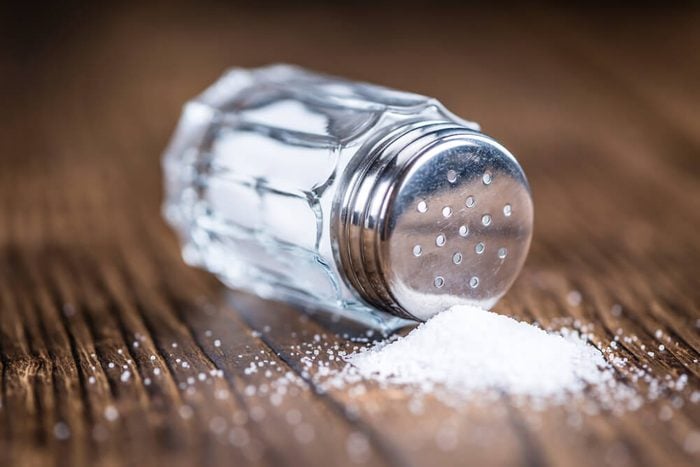
8. Adding salt before taste testing
Put down the salt shaker and pick up your spoon. Sollid wishes people would taste their food before blindly adding more salt. “While salt adds great flavor, some dishes don’t need extra,” he says. “Keep your sodium intake in check by following expert chef advice: salt to taste.”
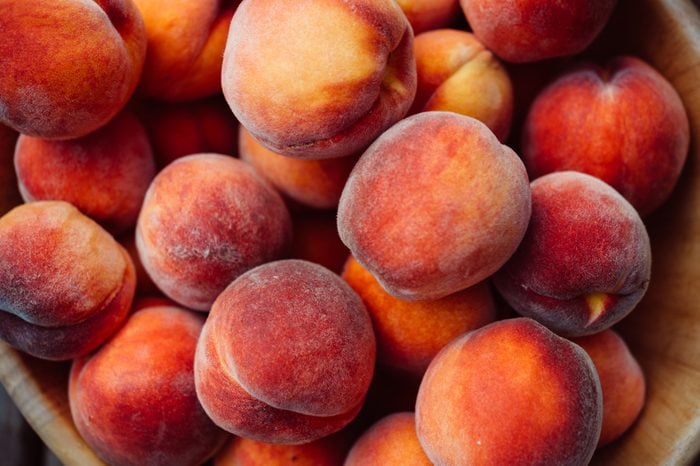
9. Avoiding fruit because of sugar
Don’t get into the habit of skipping your daily serving of fruit because it contains too much sugar, Malkani says. Unlike refined and processed sugars, fruit contains fiber, which helps slow the absorption of fructose, the main type of sugar found in fruit, into the bloodstream, Malkani explains.
“The fiber also contributes to the good bacteria in our intestines, which in turn contributes to better gut health, and it helps us feel fuller longer, which in turn helps us eat fewer calories and better manage our weight,” Malkani says.
The nutritional pros of fruit outweigh the cons, so don’t avoid it unless your doctor says otherwise.
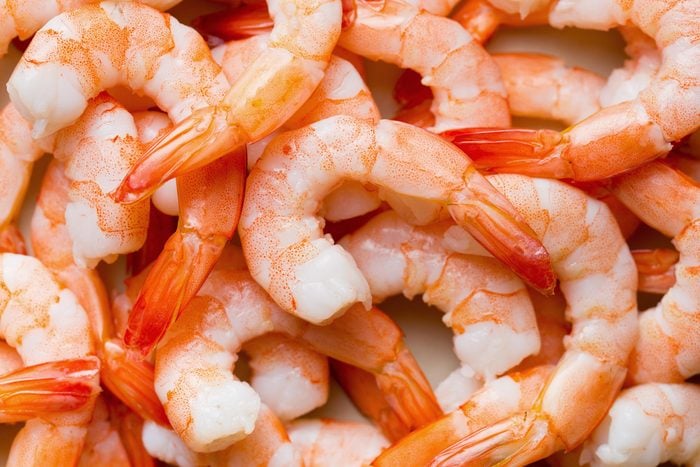
10. Thawing frozen foods on the counter
Malkani and Cecere wish people would stop defrosting their frozen foods on the counter at room temperature. Doing so creates an ideal environment for bacterial growth, which could cause foodborne illness, Malkani says. It’s safer to thaw frozen foods in the microwave or in the refrigerator overnight, Cecere recommends. Using cool running water to defrost frozen foods is also an option.
